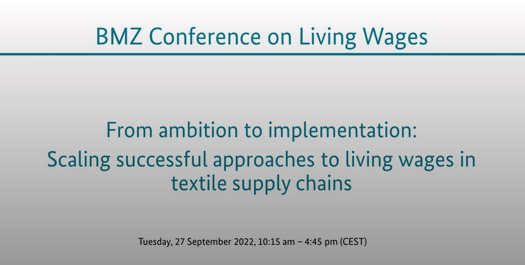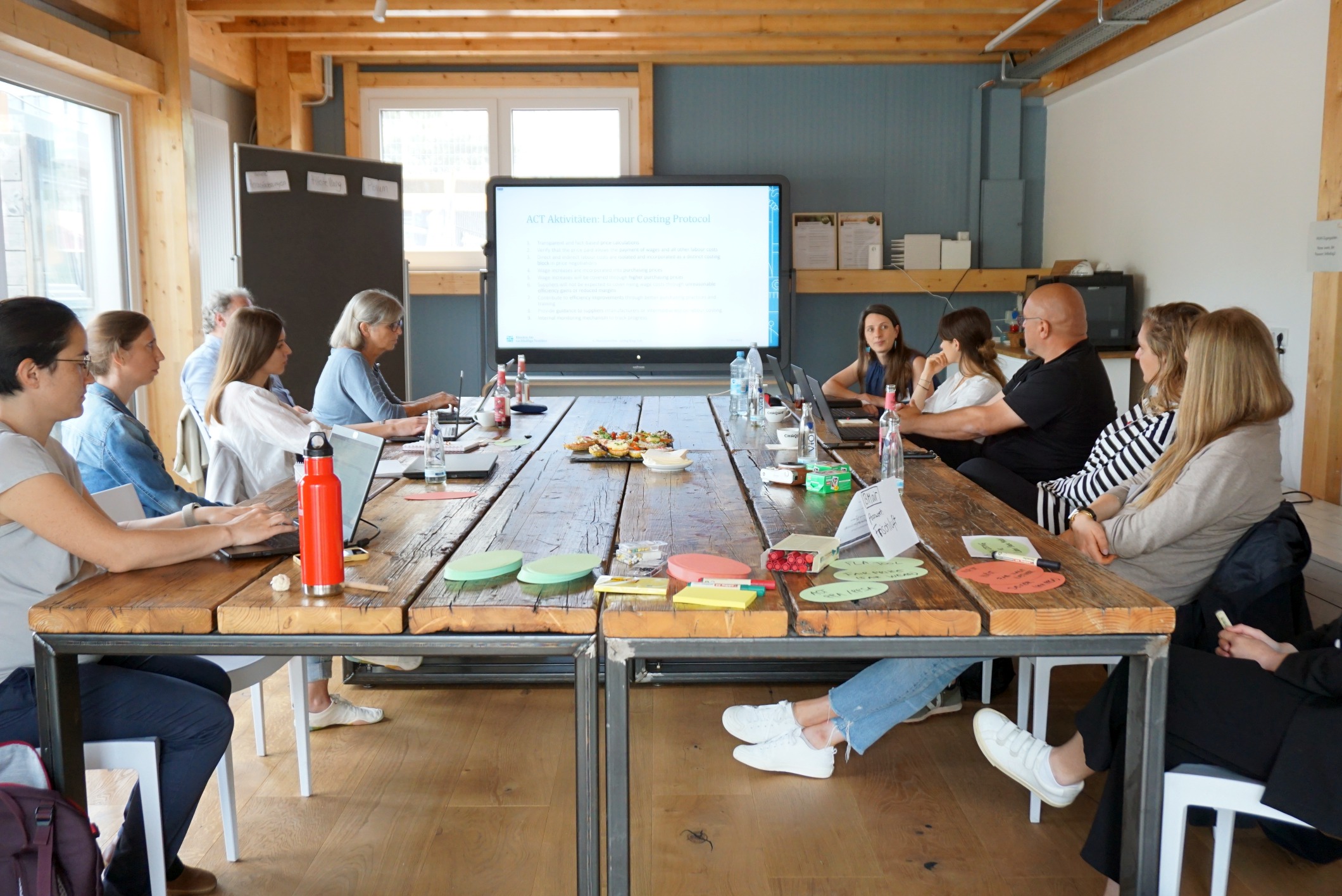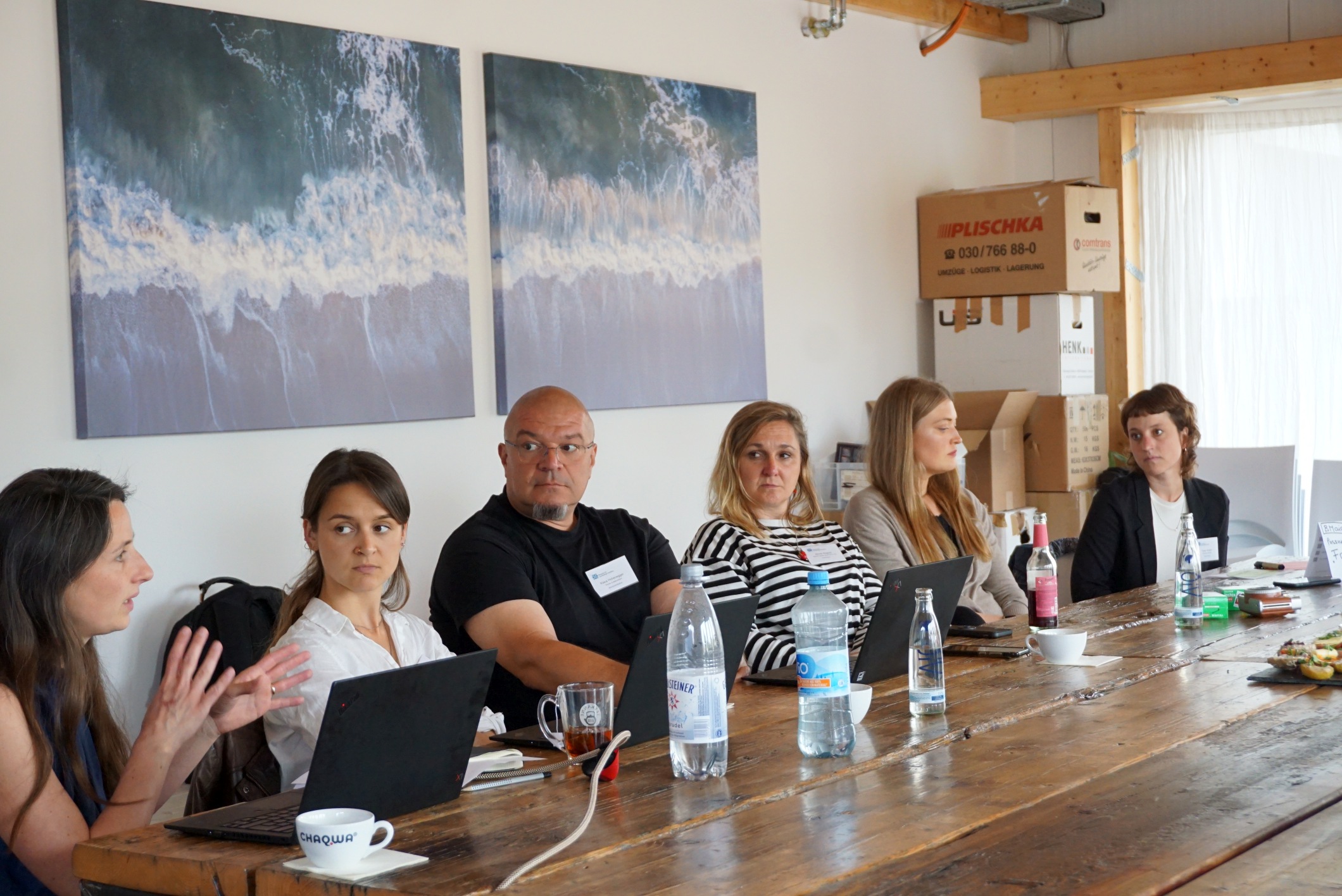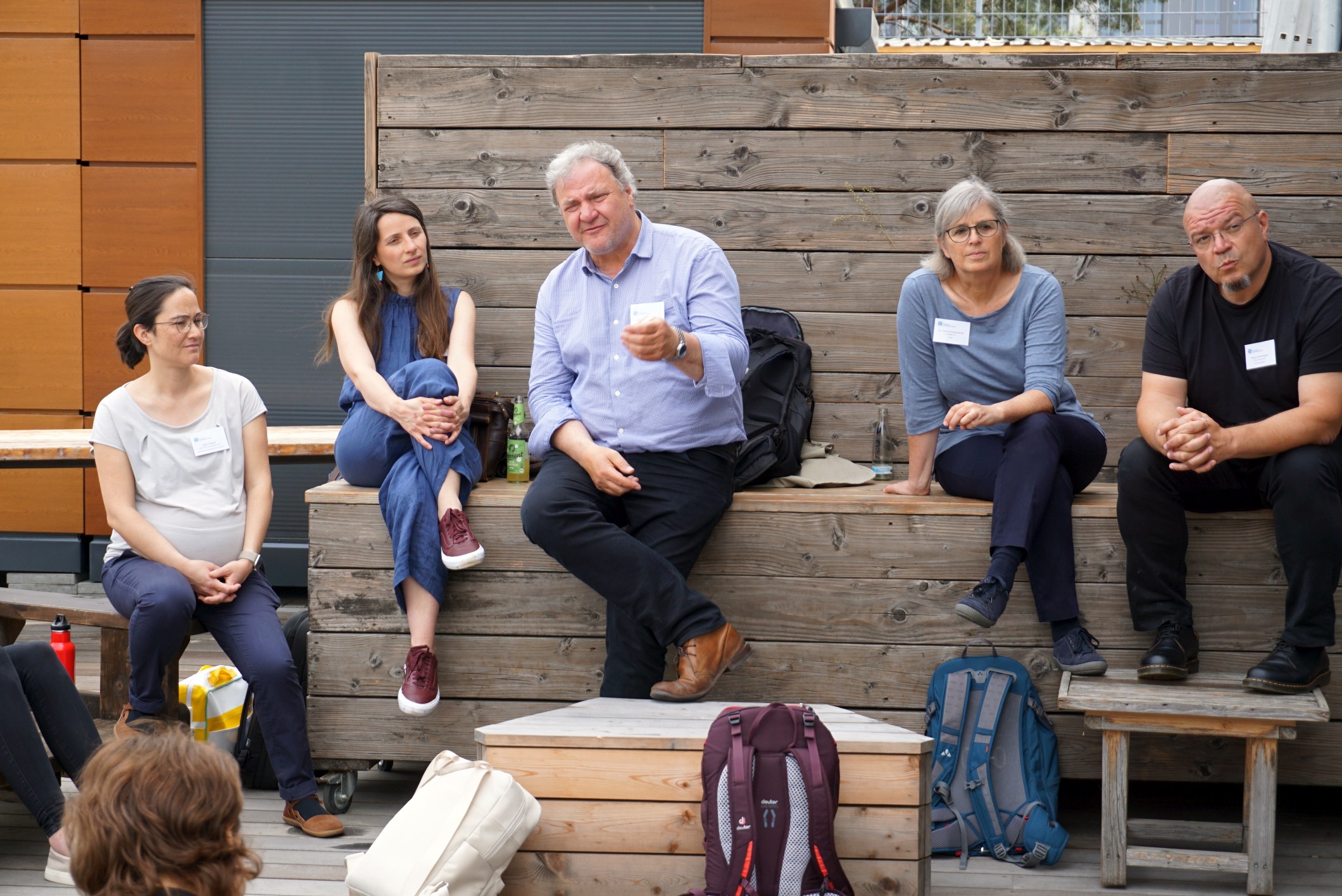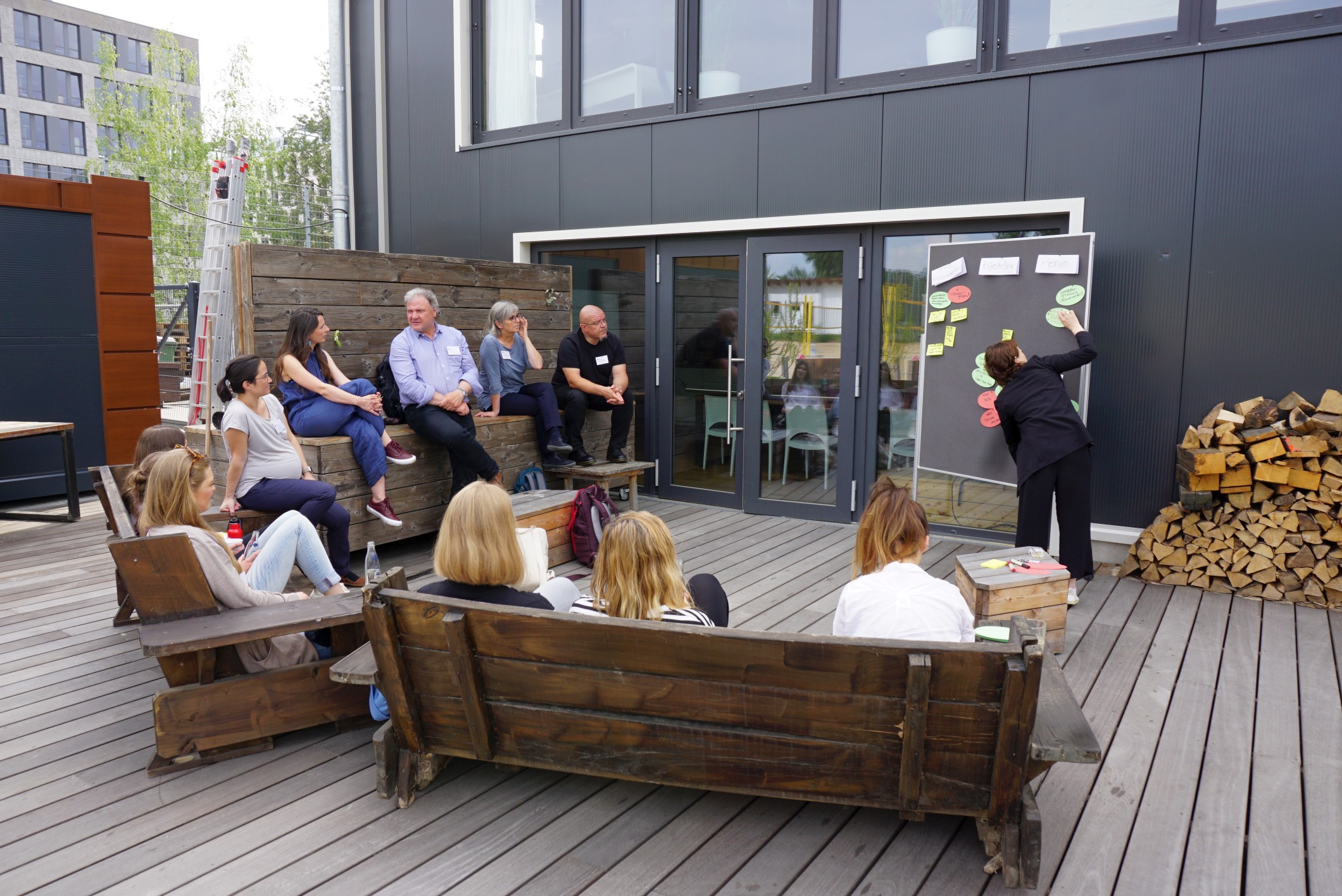Chapter 6.1
Living wages & purchasing practices
Focus topics
Living Wage Lab
The Living Wage Lab first offered participating Partnership members the opportunity to agree on what a living wage is and how to achieve it. According to the ACT initiative, with which the Textiles Partnership cooperates, a living wage is the minimum income necessary for a worker to meet the basic needs of himself/herself and his/her family, including some discretionary income. This should be earned during legal working hour limits (i.e., without overtime).
In addition, the Living Wage Lab presented and shared with participants its knowledge resources, tools for wage data collection and wage gap calculation, as well as training courses and training opportunities.
The companies nominated individual suppliers to work with them to collect wage data and analyse wages paid to workers at production facilities. This data also reveals the wage gap, i.e. the difference between the wage currently paid in real terms and the living wage proposed by recognised benchmarks. The companies then worked with the producers to develop ideas and strategies for short and long-term measures to increase wages.
The companies in the Living Wage Lab were supported by Thrive Collaborative and other strategic partners, including the Fair Wear Foundation, ACT and the Fair Labor Association.
In order to further this differentiated approach to issues and exchange of information on country-specific risks and opportunities, participants formed smaller subgroups and organised country meetings.
The Living Wage Lab expired in March 2023. The Partnership Secretariat is now collating the promising ideas and approaches to share them with other stakeholders. Project participants are planning a follow-on phase, which will build on previous activities.
Further information on the new focus topic on living wages and purchasing practices can be found on the PST website.
‘One of the most important milestones in our cooperation was establishing the working group on responsible purchasing practices. Intensive dialogue on this with other companies is of particular value to us. The development of purchasing practices is not only a statutory requirement in Germany, it is also a first point of reference for eliminating human rights violations in the supply chain. The fact that the working group has an international dimension is particularly helpful, since it enables many companies to pool their different experiences.’
Dr. Gurgen Petrossian, Senior Consultant Sustainability at s.Oliver Group
These members participated in the Living Wage Lab
Companies:
Aldi Süd, Bierbaum Proenen, Chaps Merchandising, Deuter, Greiff, Hugo Boss, Kettelhack, Ortovox, Otto Group, Vaude, Waschbär, KiK
Civil society actors:
DGB, Südwind, Inkota Netzwerk
Further cooperation partners:
Thrive Collaborative (Service provider, project management support)
Meeting of the Living Wage Lab at the Working Meeting 2022
Common Framework for Responsible Purchasing Practices (CFRPP)
In 2022, the Steering Committee established a Memorandum of Understanding to recognise the Common Framework for Responsible Purchasing Practices (CFRPP) as the official reference framework for responsible purchasing practices in the Textiles Partnership. In other multi-stakeholder initiatives, too, the CFRPP is now driving action on purchasing practices.
The CFRPP was also cited several times at the OECD Garment Forum in February 2023 as an important new framework.
News
Purchasing Practices
In future, the “Common Framework for Responsible Purchasing Practices” will serve as a basis to support members in systematically improving their purchasing practices.
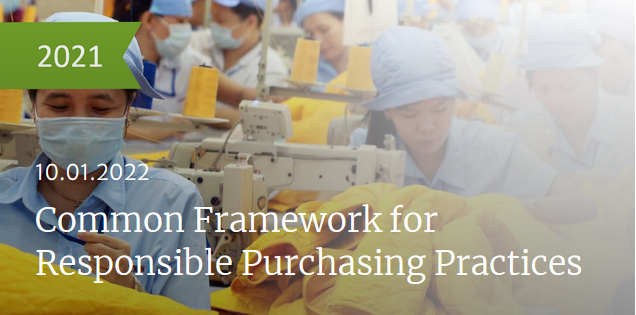

News
BMZ Conference on Living Wages: From Ambition to Implementation
On Tuesday, 27 September 2022, the German Federal Ministry for Economic Cooperation and Development (BMZ) hosted the virtual conference “From ambition to implementation: Scaling successful approaches to living wages in textile supply chains” to strengthen international cooperation on the way towards living wages.
